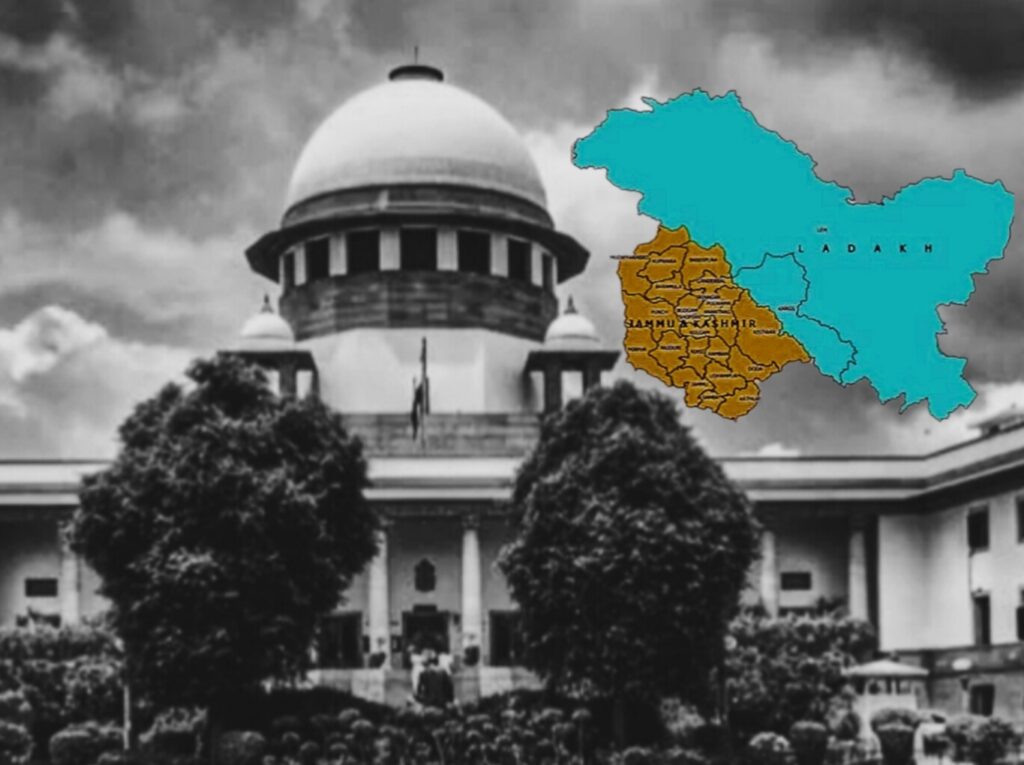Anushri Joshi
In a landmark legal development, a petition has been filed before the Supreme Court of India urging the restoration of statehood to Jammu and Kashmir within two months. The petition argues that the prolonged Union control over the region violates the federal structure enshrined in the Indian Constitution, particularly after the revocation of Article 370 and the Jammu and Kashmir Reorganisation Act, 2019. The petitioner claims the delay undermines the democratic rights of the region’s citizens and challenges the constitutional principles of federalism and cooperative governance.
The plea asserts that the Union government’s continued governance without providing a timeline for the restoration of statehood contravenes constitutional mandates, particularly Article 356, which provides for temporary imposition of President’s Rule in exceptional circumstances. The petitioner has drawn attention to the Centre’s assurances during the bifurcation of the state into two Union Territories, contending that the indefinite delay has led to the centralization of power in violation of the Constitution’s basic structure.
Relevant constitutional provisions cited include Article 1, which establishes India as a Union of States, and Article 3, which governs the reorganization of states, with an emphasis on the Union’s responsibility to restore normalcy and statehood. Additionally, the plea invokes the landmark judgment of S.R. Bommai vs. Union of India (1994)[1] ,wherein the Supreme Court set limitations on the imposition of President’s Rule and held that such interventions must be temporary, upholding the democratic character of the state.
The legal challenge also questions whether the Union’s prolonged control is justifiable, especially given its commitments and the principles of federalism. The petition highlights that continued delay erodes public trust and deprives the people of Jammu and Kashmir of their democratic rights to self-governance and representation in their legislative assembly.
The Supreme Court’s decision on this plea could have far-reaching consequences on the contours of India’s federalism and the governance of politically sensitive regions, setting a precedent for the re-establishment of statehood in territories temporarily under Union control. All eyes are now on the Supreme Court to weigh the constitutional balance between central authority and regional autonomy in light of this pivotal case.
The case holds significant implications for the interpretation of the Jammu and Kashmir Reorganisation Act, 2019, and the manner in which the Union exercises its powers under Articles 356 and 3 of the Constitution. The outcome will determine the Union’s accountability in fulfilling its promise to restore statehood and the constitutional boundaries of such governance.
[1]3 SCC 1

